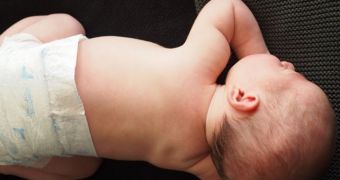A set of conjoined twins who have identical faces and separate brains but share a single body were born in Sydney, Australia, on Thursday, reports say.
Renee Young and Simon Howie, of Tregear, knew that the twins they were expecting were actually one baby with two symmetrical faces and two brains housed in a single skull, and, although they were initially advised to terminate the pregnancy, the couple decided to keep the baby.
The twin girls were born with an extremely rare condition called diprosopus – also known as craniofacial duplication – in which the embryo fails to split in the early stages of pregnancy and the newborns share a single body, normal limbs, but have separate faces and brains.
Renee gave birth to the girls, named Faith and Hope, via an emergency C-section at Blacktown Hospital in Sydney six weeks before they were due, and although the couple is aware of the severity of their twins' condition, they remain optimistic and hope that they will survive longer than previous documented cases.
“A little luck, a little bit of faith, a bit of hope, hopefully we'll come out on the other side, as long as they're fighters,” the new mother said, according to the New York Daily News.
Statistics show that there have been only 35 recorded cases of diprosopus since the 1860s, most of which were stillborn or survived only days after birth. However, Faith and Hope defied all odds and are currently in a stable condition and breathing on their own at the Children's Hospital at Westmead, where they were transferred immediately after their birth.
Parents Young and Howie, who already have seven children, say they were told something was wrong when she was 19 weeks pregnant, but they categorically refused to terminate the pregnancy.
“I went for my scheduled ultrasound appointment and then the sonographer there seen something was up and sent me straight back to my local GP and my local GP sort of cut the news to us,” Renee told Australian program A Current Affair.
The couple are aware of the long-term risks associated with their daughters' disorder and are prepared for the worst, but they motivate their decision of not letting their unborn twins go saying that it's the same as having a child with autism or Down syndrome, so terminating the pregnancy was never an option for them.
“If I only get two days with the baby, I only get two days with the baby, at least I have some time with it.” Renee explained.

 14 DAY TRIAL //
14 DAY TRIAL //